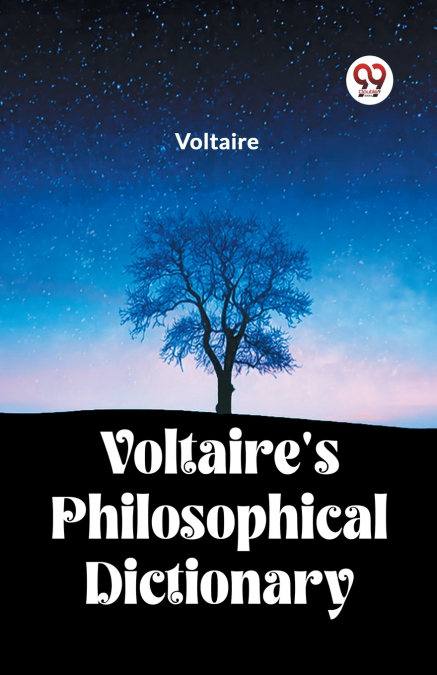
 Librería Desdémona
Librería Desdémona
 Librería Samer Atenea
Librería Samer Atenea
 Librería Aciertas (Toledo)
Librería Aciertas (Toledo)
 Kálamo Books
Kálamo Books
 Librería Perelló (Valencia)
Librería Perelló (Valencia)
 Librería Elías (Asturias)
Librería Elías (Asturias)
 Donde los libros
Donde los libros
 Librería Kolima (Madrid)
Librería Kolima (Madrid)
 Librería Proteo (Málaga)
Librería Proteo (Málaga)
Voltaire’s 'Philosophical Dictionary' stands as a huge work that encapsulates the Enlightenment thinker’s wit, skepticism, and intellectual prowess. Composed within the 18th century, Voltaire, a key figure of the Enlightenment, provides a complete collection of essays, reflections, and critiques that discover a myriad of subjects ranging from faith and morality to technological know-how and governance. In this magnum opus, Voltaire employs his function satirical style to dissect the prevailing institutions and ideologies of his time. With eager insights and a razor-sharp pen, he demanding situations dogma, promotes purpose, and advocates for freedom of thought. The 'Philosophical Dictionary' is a testomony to Voltaire’s dedication to purpose, secularism, and a relentless pursuit of understanding. Structured as an alphabetical encyclopedia, the paintings covers an extensive array of topics, providing readers with a panoramic view of the Enlightenment’s highbrow panorama. Voltaire’s erudition and irreverence make this collection not simplest a vital examination of his modern-day society however also a undying exploration of human nature and the pursuit of enlightenment. 'Philosophical Dictionary' stays a cornerstone of Enlightenment literature, showcasing Voltaire’s enduring influence as a logician, satirist, and recommend for intellectual freedom. Through its pages, readers come upon a profound and often humorous engagement with the thoughts that formed the Enlightenment and continue to resonate within the nation-states of philosophy and essential thinking.